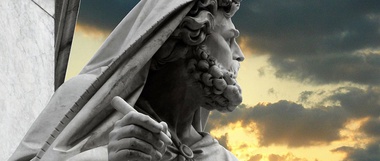The concept of prophecy has long captivated humanity, serving as a bridge between the spiritual realm and the tangible world. Among the myriad prophecies scattered throughout sacred texts, Isaiah’s Triple Prophecy stands out, particularly within the Bahá’í Faith. This prophecy presents a compelling narrative that many adherents believe finds its fulfillment in Bahá’u’lláh, the founder of the Bahá’í Faith. In exploring this teaching, one enters an intriguing intersection of scriptural interpretation, divine revelation, and historical context. The following is an examination of this profound topic.
Understanding Isaiah’s Triple Prophecy
At its core, Isaiah’s Triple Prophecy articulates the emergence of a significant figure who would usher in a new era of spiritual enlightenment. Embedded in the Book of Isaiah, these prophetic verses offer glimpses of a leader who would be characterized by wisdom, unity, and transformative power. The singularity of this prophecy lies in its multidimensional nature: it is simultaneously a proclamation of God’s omnipotence, a call for social justice, and a vision for global unity.
To comprehend how Bahá’u’lláh fulfills this triple prophecy, it is essential first to unpack its three components. Each aspect serves as a lens through which the Bahá’í teachings can be further understood and appreciated.
1. The Prophetic Expectations
The first aspect of Isaiah’s prophecy revolves around the anticipated characteristics of the future Messenger of God. This figure would be endowed with divinely-inspired insights, enabling them to address the moral and spiritual deficiencies of humanity. Bahá’ís maintain that Bahá’u’lláh emerged during a tumultuous period in history, replete with societal fragmentation and discord. His birth and subsequent revelations can be interpreted as a direct response to the sweeping changes and existential challenges faced by humanity at that juncture.
This assertion is bolstered by a look at historical conditions during the 19th century, particularly in Persia. The sociopolitical landscape of the time was fraught with injustices that galvanized reformers and spiritual leaders alike, making the need for a unifying figure all the more urgent.
2. Divine Manifestation of Unity
The second element of Isaiah’s prophecy emphasizes the concept of unity that transcends geographical, cultural, and religious boundaries. In a world characterized by division, Bahá’u’lláh’s primary teaching is the oneness of humanity. He posited that true spiritual and social advancement would only be possible when individuals recognized their intrinsic connection to one another. This vision of unity is a direct echo of Isaiah’s prophetic insights and becomes manifest in the teachings promulgated by Bahá’u’lláh.
Notably, Bahá’u’lláh’s writings emphasize the importance of collective human progress, an ideology that resonates profoundly within the Bahá’í community. His concept of unity invites followers not only to cherish diversity but also to actively pursue the eradication of prejudices and barriers that obstruct communal harmony. Thus, the Bahá’í Faith’s emphasis on global unity is seamlessly linked to the prophetic insights of Isaiah.
3. The Role of Justice
The final aspect of the prophecy encapsulates a call for justice and righteousness, virtues often reiterated in the teachings of Bahá’u’lláh. In Isaiah’s vision, the anticipated figure would not only proclaim lofty ideals but also work tirelessly to translate those aspirations into tangible realities. Justice emerged as a central tenet in Bahá’u’lláh’s revelations, advocating for social equity and moral rectitude. His advocacy for marginalized communities and his condemnation of tyranny exemplify the prophecies’ vision for societal transformation.
Through the establishment of institutions aimed at fostering social justice, such as the Bahá’í Court of Justice, the Bahá’í Faith embodies the prophetic commitment to righteousness. In this light, Bahá’u’lláh’s life and teachings manifest an ongoing engagement with the transformative power of justice, fulfilling the prophetic expectations outlined by Isaiah.
Interpreting the Prophetic Legacy
In examining the fulfillment of Isaiah’s Triple Prophecy within the Bahá’í context, one must also consider the broader implications of prophetic legacy. The act of recognizing Bahá’u’lláh as the manifestation of this prophecy invites deep contemplation on the nature of divine guidance. Prophets, as understood within the Bahá’í framework, transcend mere messengers; they are manifestations of divine attributes and embodiments of humanity’s collective spiritual evolution.
This perspective urges individuals to transcend superficial interpretations of prophecy and engage in an intellectual and spiritual exploration of their meanings, particularly in relation to contemporary societal challenges. How does the fulfillment of Isaiah’s prophetic vision influence engagement with the current injustices that plague humanity? What responsibilities do individuals bear in recognizing and implementing these prophetic teachings in their lives? These questions invite profound reflection.
Conclusion: The Ongoing Relevance of Prophecy
The exploration of Isaiah’s Triple Prophecy and its fulfillment in Bahá’u’lláh opens a broader dialogue about the enduring relevance of prophetic messages across diverse cultures and epochs. It highlights the resonance of universal values such as unity, justice, and moral integrity. Ultimately, the Bahá’í teachings offer a comprehensive framework to not only understand the profound nature of Isaiah’s predictions but also to participate in the ongoing work of spiritual renewal and global transformation.
In a world yearning for direction in times of disillusionment, the examination of prophetic insights such as those articulated by Isaiah serves as an invaluable resource. It invites individuals to participate in a higher purpose that advocates for a more just and unified world. Thus, the investigation into Bahá’u’lláh’s fulfillment of Isaiah’s Triple Prophecy is not merely an academic exercise; it is an invitation to harness the transformative power of divine teachings for the elevated service of humanity.
